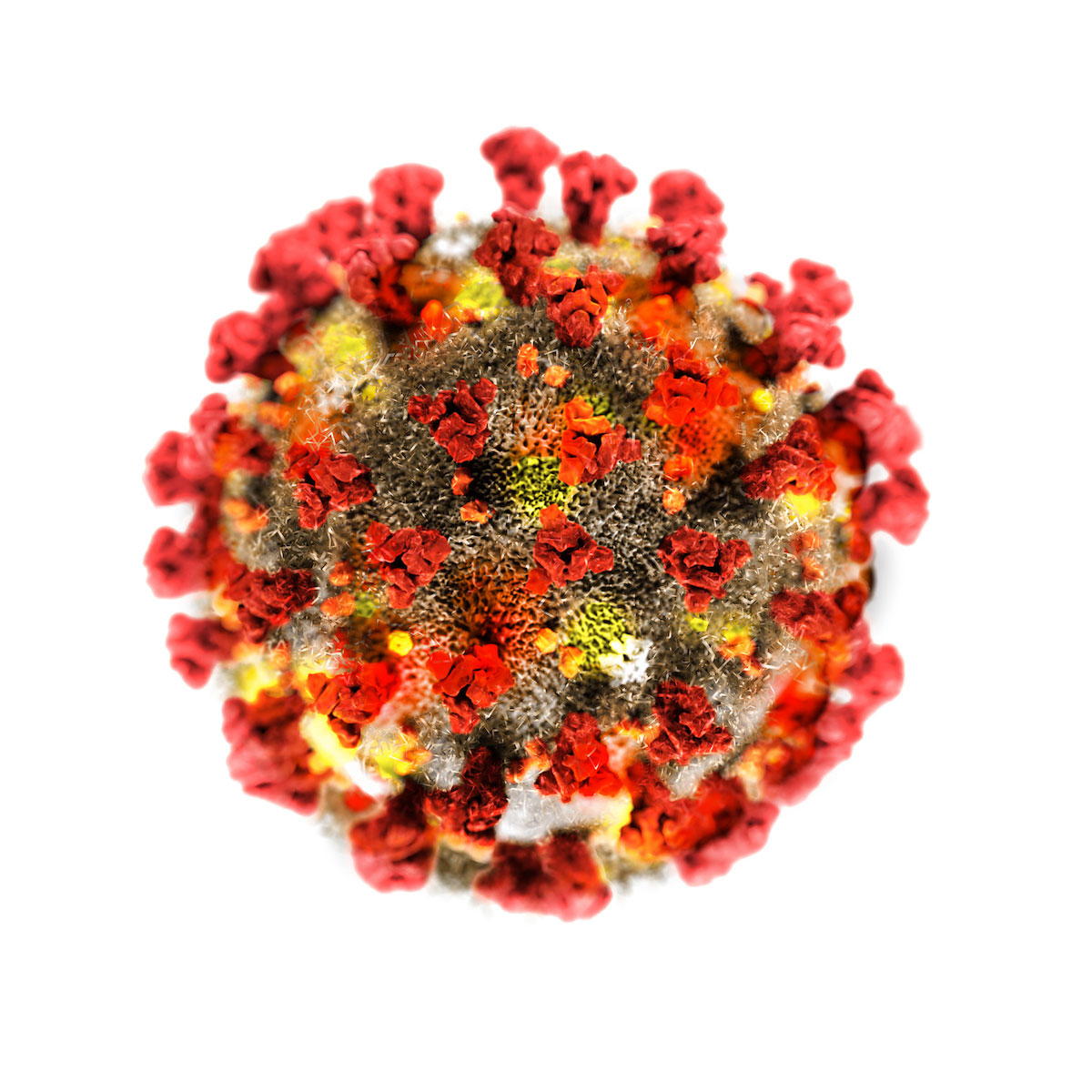<< Back
5 Ways to Get Sick, Besides COVID-19, From Poor Hand Hygiene

August 10, 2020
COVID-19 is powerful motivation to wash your hands frequently. But any germaphobe knows thousands of germs can lurk on the unwashed hand.
A University of Colorado at Boulder study found 3,200 bacteria from 150 species on human hands. Yuck! (Just take a look under a microscope at SARS-CoV- 2, above, the virus that causes COVID-19.)
Here is what you risk by not washing your hands or interacting with those who don’t:
1. Airborne illnesses: Cold and Flu, Chicken Pox, Meningitis
Respiratory illnesses typically spread when we inhale droplets expelled into the air by an infected person’s cough or sneeze, even by speaking. But these germs also spread by poor hand hygiene. This year, cold and flu season collides with an expected second wave of COVID-19. Keep that soap and sanitizer ready.
2. Norovirus: Viral gastroenteritis
Norovirus, which causes viral gastroenteritis, can spread rapidly through a household or office where hand hygiene is not a priority. Diarrhea, nausea, vomiting and stomach pain are common symptoms.
3. E. coli (Escherichia coli)
You can get E. coli by eating tainted meat or touching infected surfaces, but this bacteria also lives in your intestines. Those who do not wash their hands properly after visiting the bathroom — a Michigan State study found that 95 percent of people do not wash their hands sufficiently to kill harmful bacteria — can spread E. coli on everything they touch. If you become infected, it’s not fun: Expect a bout of diarrhea, abdominal cramps and vomiting. Some types of E. coli can also cause urinary tract infections or pneumonia.
4. Salmonella
Eating foods, usually poultry or other animal, contaminated with salmonella is an invitation to some nasty abdominal pain and cramps, diarrhea and fever. Salmonella lives in animal intestines. (It also lives in human intestines.) You can pick it up by touching eggs or uncooked chicken in a supermarket, too.
5. Hepatitis A
Back to the bathroom: The virus that causes Hepatitis A usually spreads when you eat or drink something contaminated with fecal matter. The subsequent liver infection and inflammation is often accompanied by a abdominal discomfort, vomiting, darkened urine, loss of appetite and joint pain.